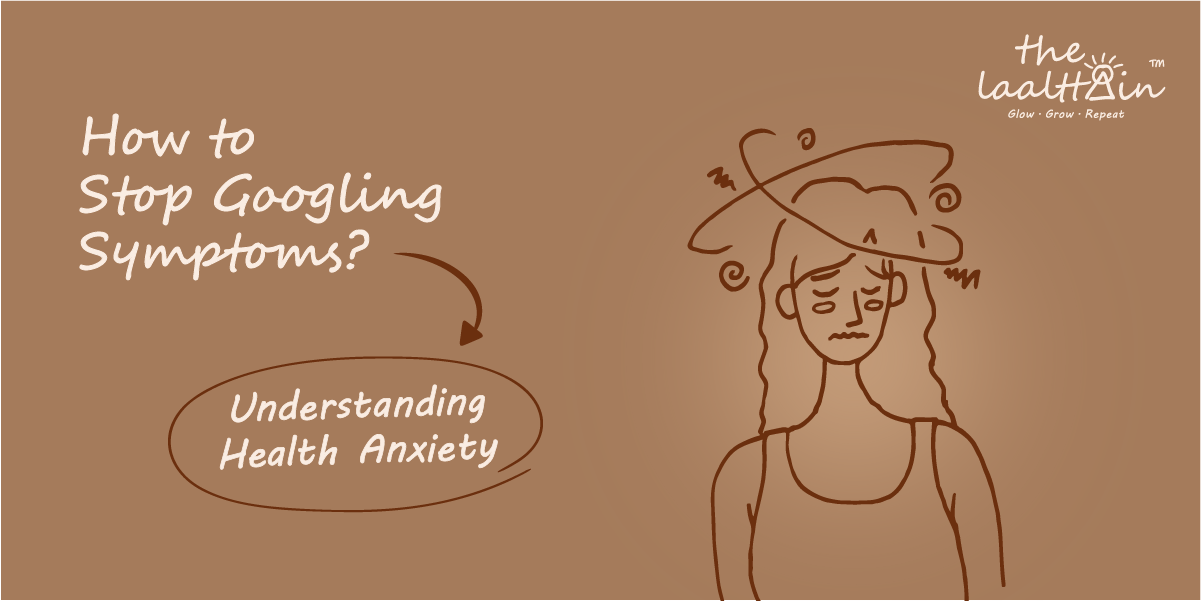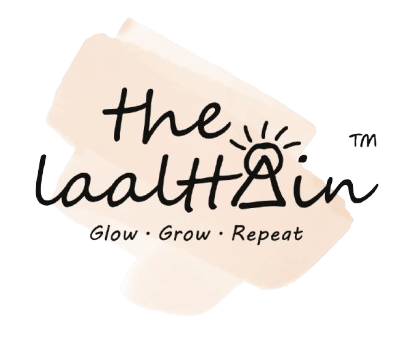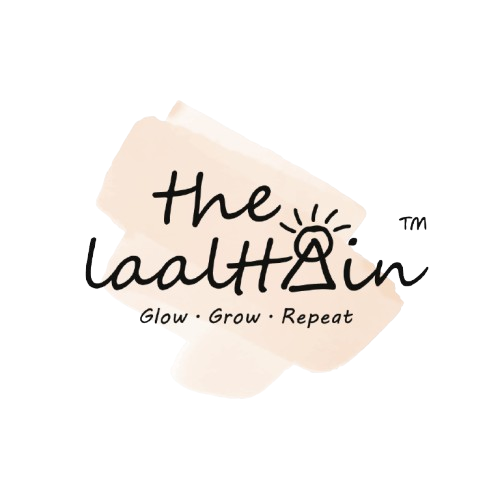
Hello my lovely Luminer!
Do you remember Daijaan (Khaala) from Kabhi Khushi Kabhie Gham? She was the ever-loving, ever-worried figure who would panic at the tiniest sign of discomfort. “Mujhe lagta hai mujhe kuch hone waala hai,” she’d say, clutching her chest dramatically. While everyone around her laughed it off, what if this constant worry wasn’t just a quirk but something deeper?
Let’s think about how many times we’ve felt like Daijaan. A headache that won’t go away, a random ache in the body, or that annoying cough that has us spiraling down a Google search, convincing ourselves it’s something life-threatening. That’s health anxiety. And it’s more common than you think.
What Is Health Anxiety
Health anxiety, or illness anxiety disorder as per the DSM-5 (Diagnostic and Statistical Manual of Mental Disorders), is characterized by preoccupation with having or developing a serious illness. People with health anxiety often misinterpret normal bodily sensations—like a slight headache or fatigue—as symptoms of a major health issue.
It’s important to note that health anxiety isn’t about “imagining” illnesses. It’s a genuine mental health condition rooted in how our mind processes and reacts to perceived threats. It’s linked to cognitive distortions like catastrophizing (expecting the worst outcome) and hypervigilance (being overly alert to changes in the body).
How Does Health Anxiety Show Up
- You can’t stop Googling every tiny symptom, and somehow every search ends with “this might be fatal.”
- You’re constantly checking your body—feeling for lumps, examining spots, or noticing things most people would ignore.
- You might avoid watching health-related news altogether, or you do the opposite—reading everything obsessively, adding fuel to the fire.
- Even after visiting doctors and getting a clean bill of health, the doubt lingers. “What if they missed something?”
Why Does Health Anxiety Happen
How We Think
Our minds are wired to jump to conclusions, especially about our health. Cognitive-behavioral therapy (CBT) talks about catastrophizing—imagining the worst-case scenario. A minor sensation is no longer just discomfort; it’s the start of something catastrophic.
Stress and Trauma
If you’ve seen someone close struggle with a serious illness or faced a health scare yourself, it can leave a lasting impression. That constant fear of “What if it happens to me?” doesn’t just go away.
Too Much Information
Google is great, but it’s not your doctor. In today’s world, where WhatsApp forwards and social media are filled with half-baked health advice, it’s easy to feel overwhelmed.
Your Brain’s Fear Network
The brain’s amygdala, which processes fear, can overreact, making normal sensations feel alarming. Basically, your brain is on high alert, even when there’s no real danger.
How to Tackle Health Anxiety
Stop Googling Symptoms
Yes, it’s tempting to search every little thing, but Google doesn’t know your body. It just spits out scary possibilities. Take a break from those searches and talk to a doctor instead.
Question Your Thoughts
When a thought like, “This stomach pain is probably something serious,” pops up, pause and ask yourself: “What’s the more likely explanation?” Most times, it’s something simple like indigestion or stress. Writing these thoughts down can help you see how often they’re exaggerated.
Practice Mindfulness
Mindfulness and techniques like pranayama can help calm your overthinking mind. Focus on the present moment instead of spiraling into what-ifs.
Be Selective About Social Media
Health content on social media can be a mixed bag. Stick to authentic, well-researched sources, and unfollow accounts that amplify your anxiety. If a page, influencer, or video makes you feel worse, it’s probably not worth your time.
Seek Therapy
Therapies like CBT are super effective for managing health anxiety. They help you identify and challenge those thought patterns that keep the anxiety alive. Hypnotherapy can also work wonders if your anxiety stems from deeper fears or past experiences. It helps rewire how your subconscious processes these triggers, giving you a sense of calm and control.
Prriyanka’s Bonus Insights
Social media can be both a blessing and a curse. While some platforms provide genuine help, many thrive on fear-mongering because it gets attention. If you notice a social media account tapping into your fears instead of helping you feel informed and calm, take that as a sign to unfollow. Stick to trusted sources and remember, no one on Instagram knows your body better than you.
At The Laalttain, we believe that understanding your mind is the first step toward living a more meaningful and fulfilling life. Health anxiety, like many mental health challenges, isn’t about weakness—it’s about patterns that can be unlearned with the right tools and support.
If this blog helped you reflect or gave you new insights, we’d love to hear from you. Remember, your health—mental and physical—is always worth prioritizing. Until next time, keep shining your light with knowledge and compassion!
Light ‘En’ Light.
References:
- American Psychiatric Association, DSM-5 Definition of Illness Anxiety Disorder.
- Cognitive Distortions in Anxiety Disorders – Journal of Anxiety Disorders, 2018.
- The Role of Amygdala Hyperactivity in Anxiety – Nature Neuroscience, 2019.
- Effectiveness of CBT for Health Anxiety – National Institute for Health Research, UK, 2021.
- Hypnotherapy as a Treatment for Anxiety – American Journal of Clinical Hypnosis, 2020.

